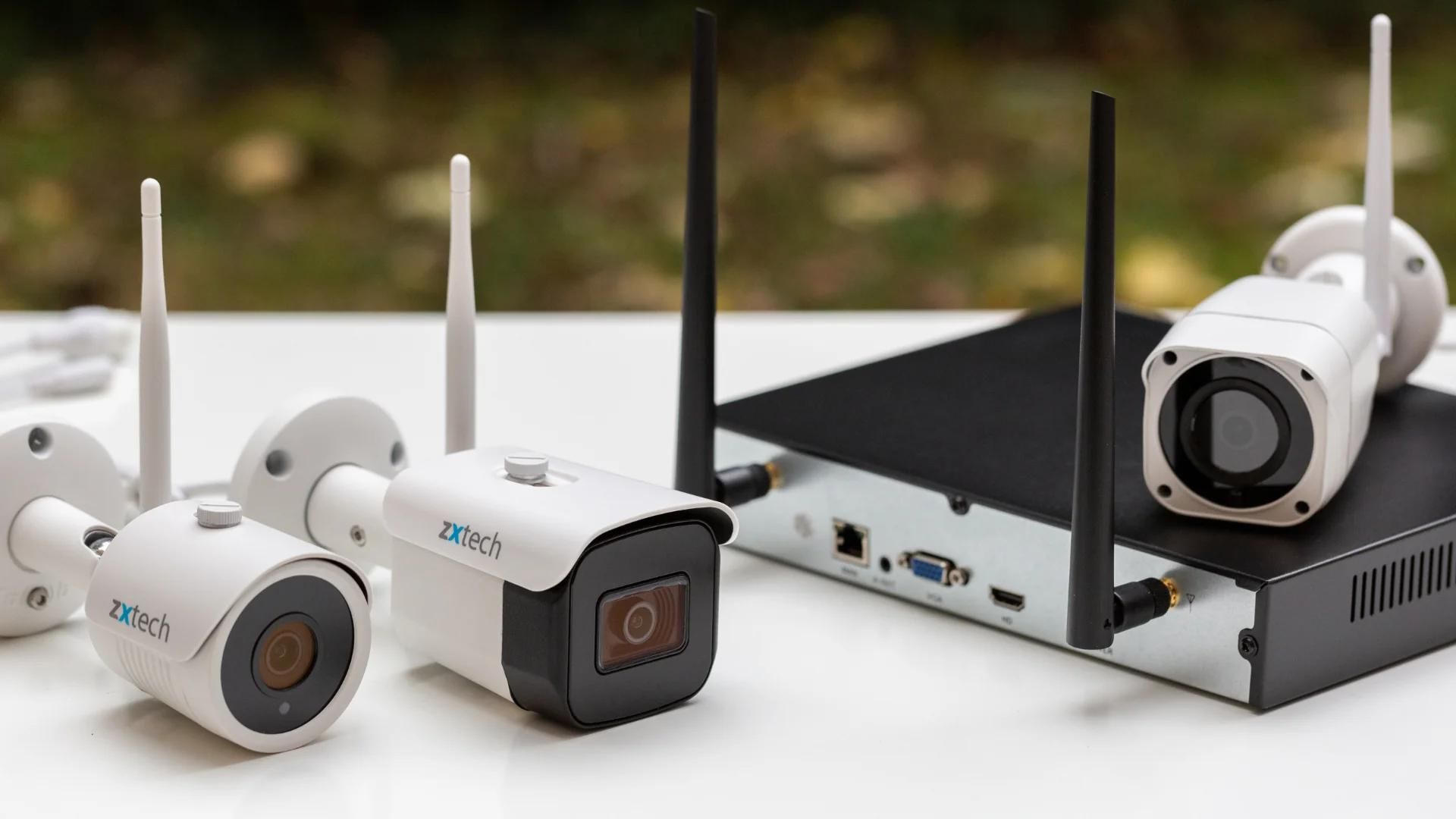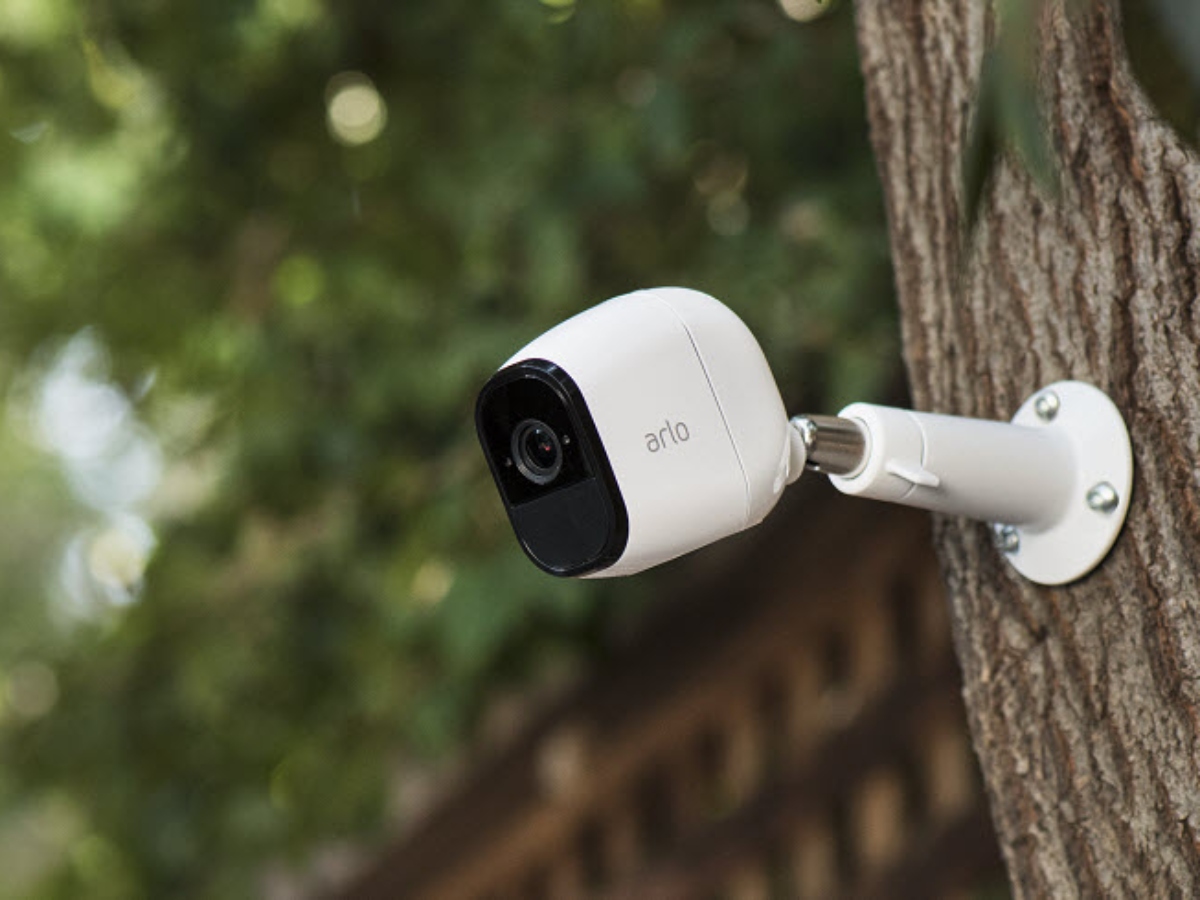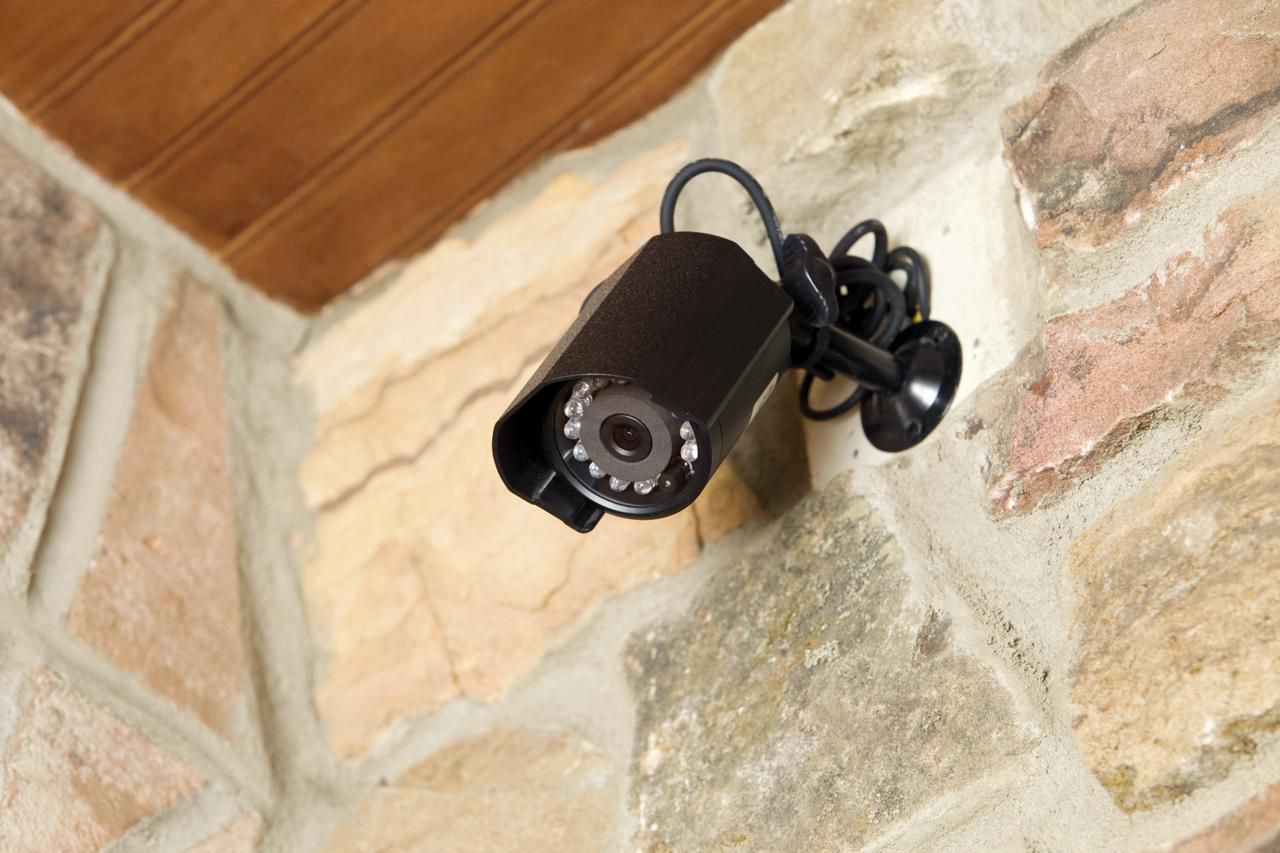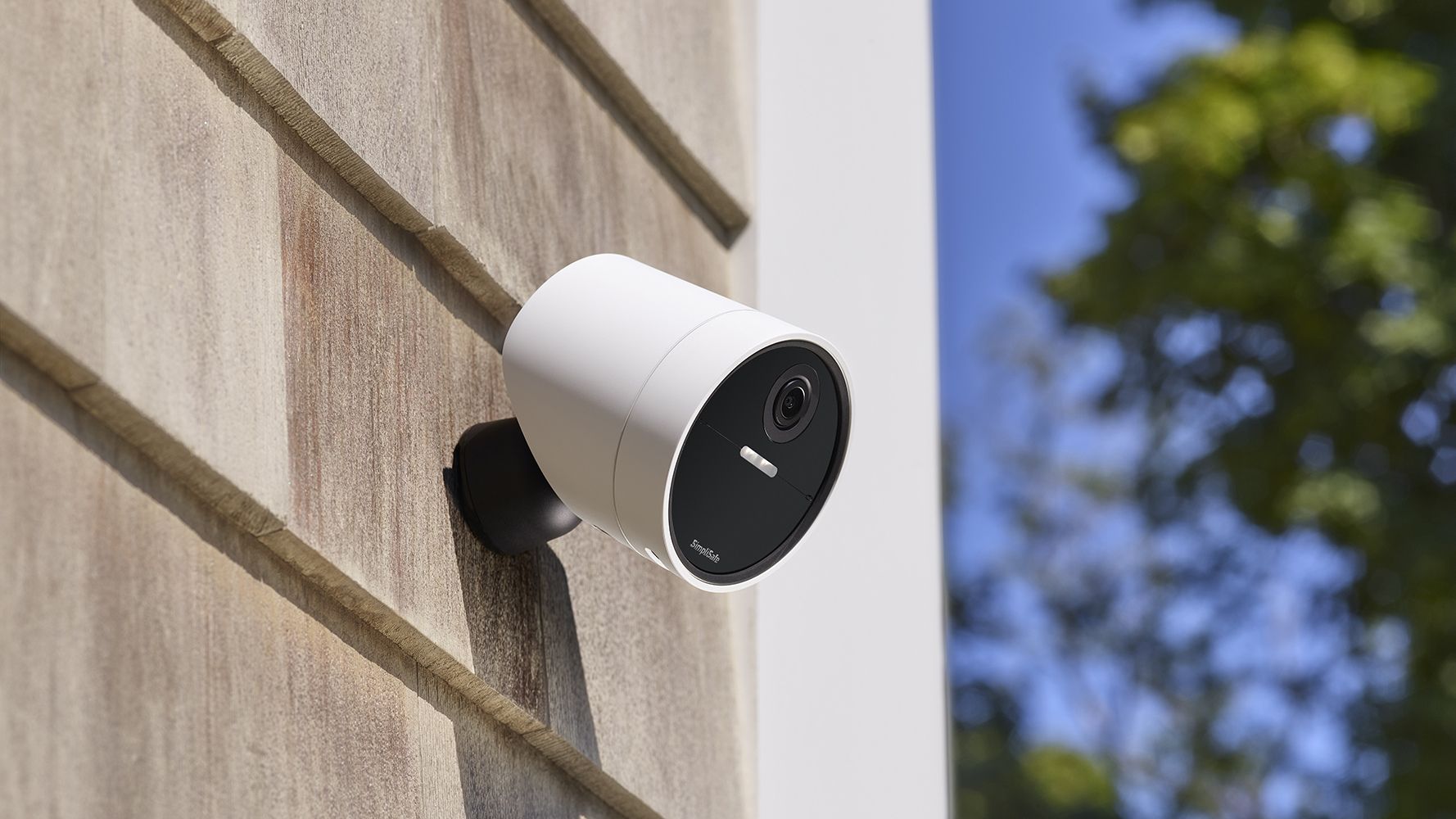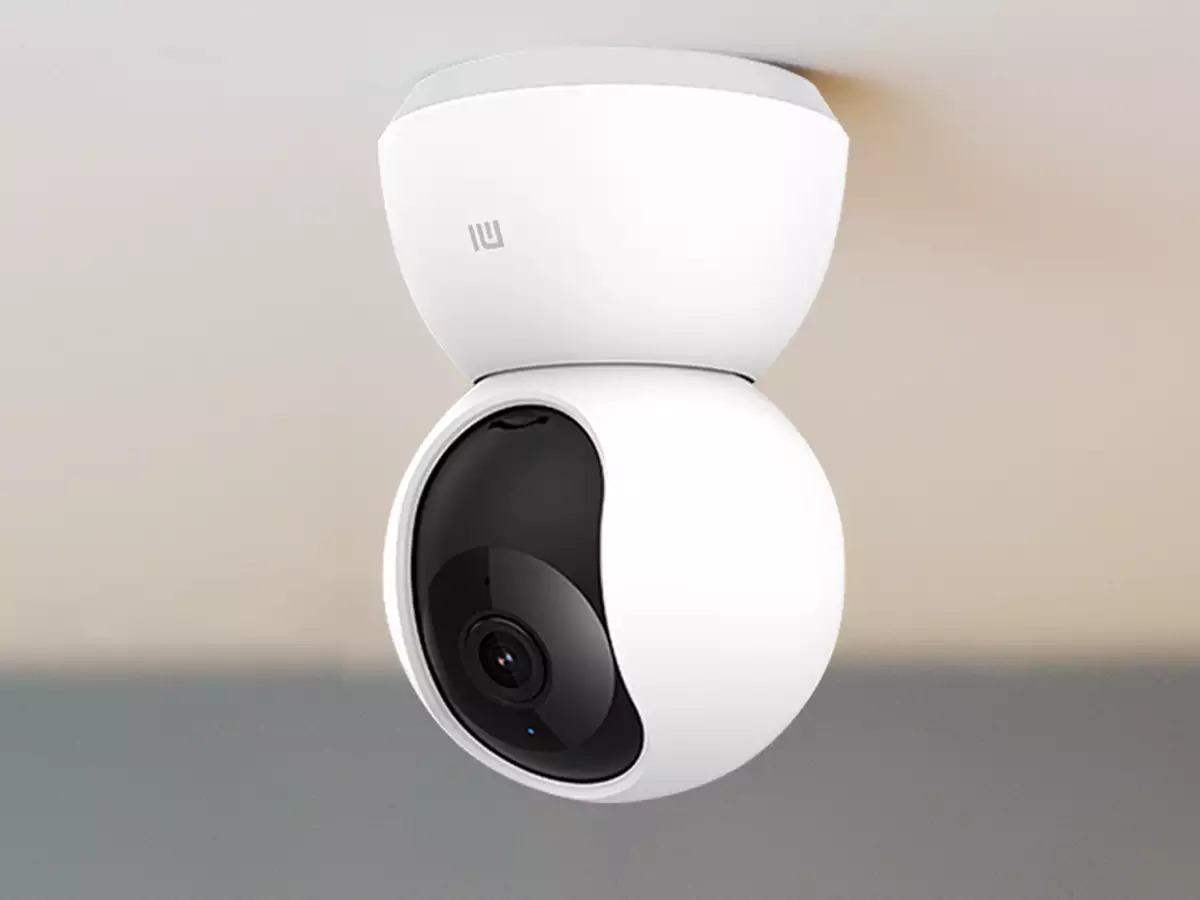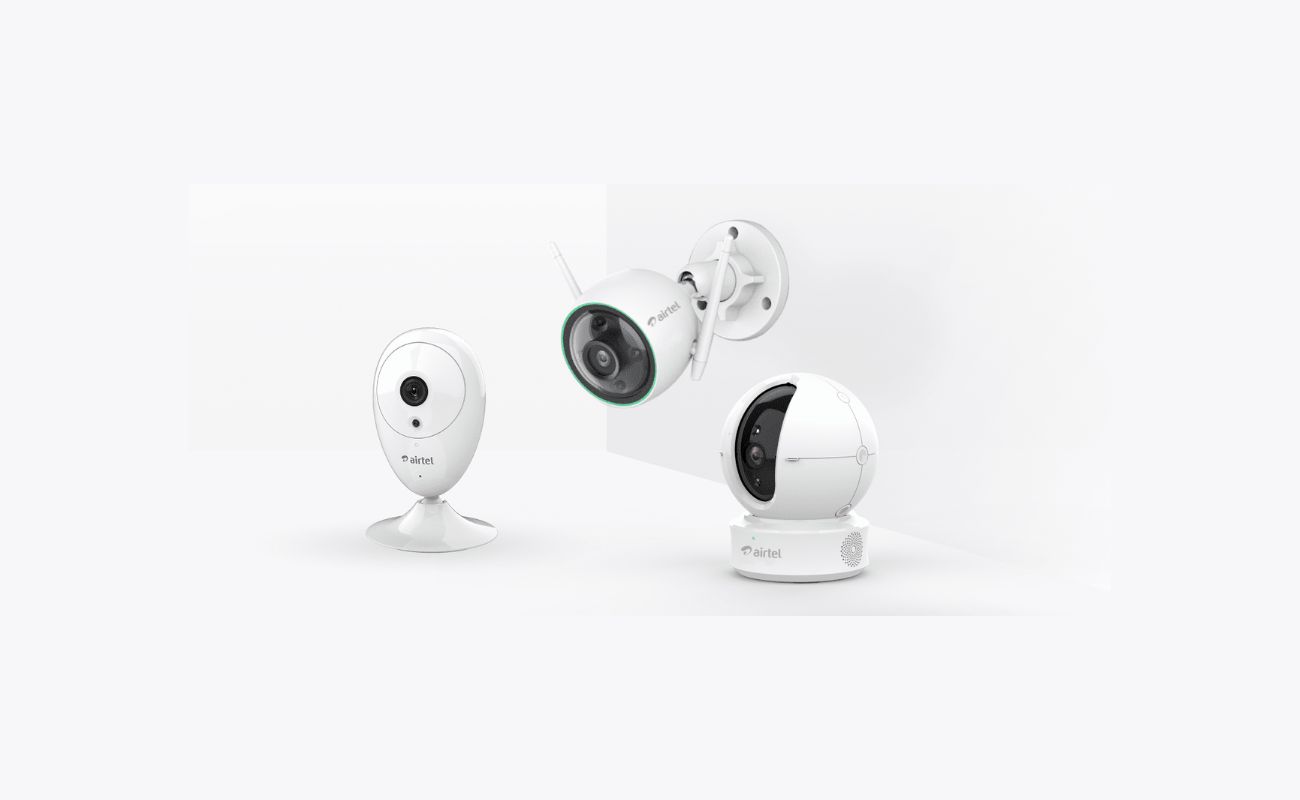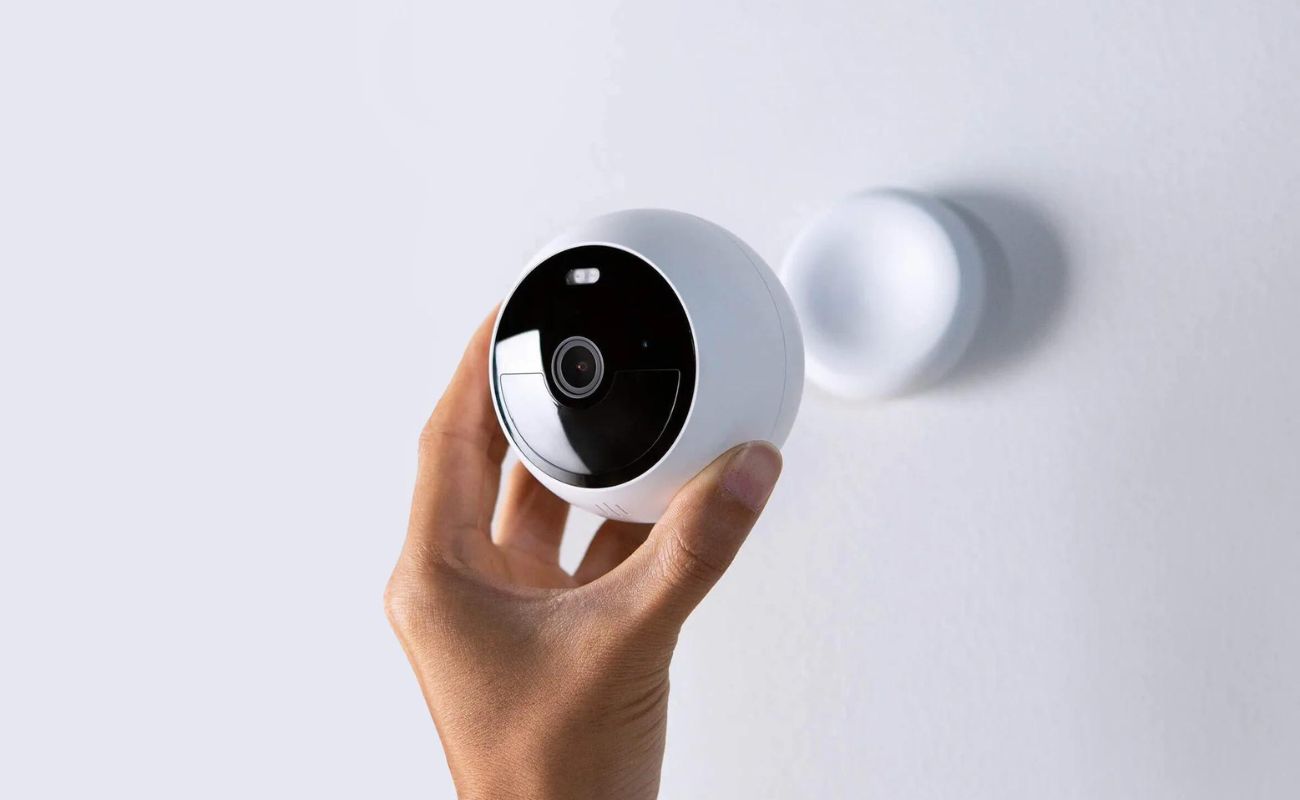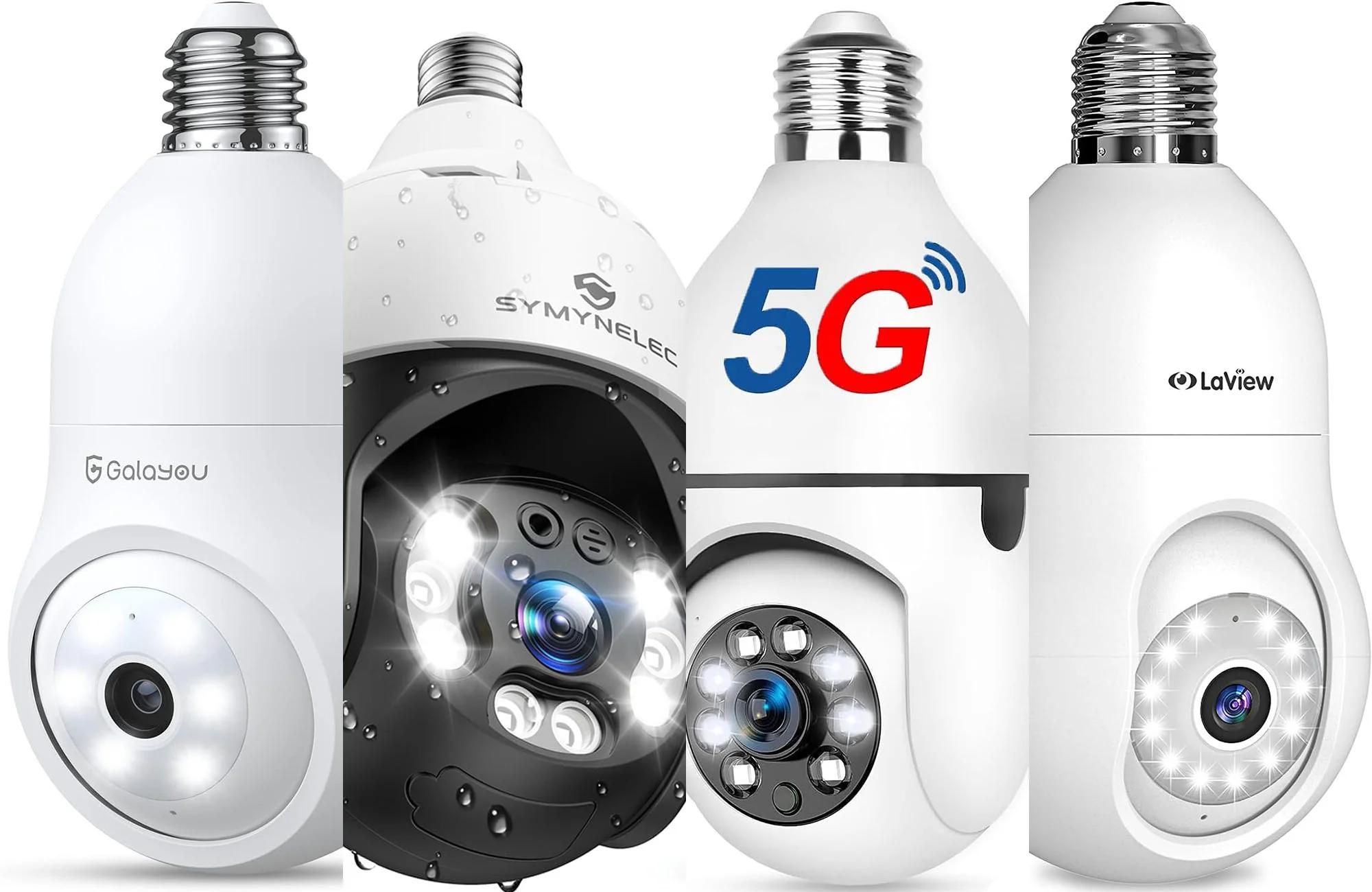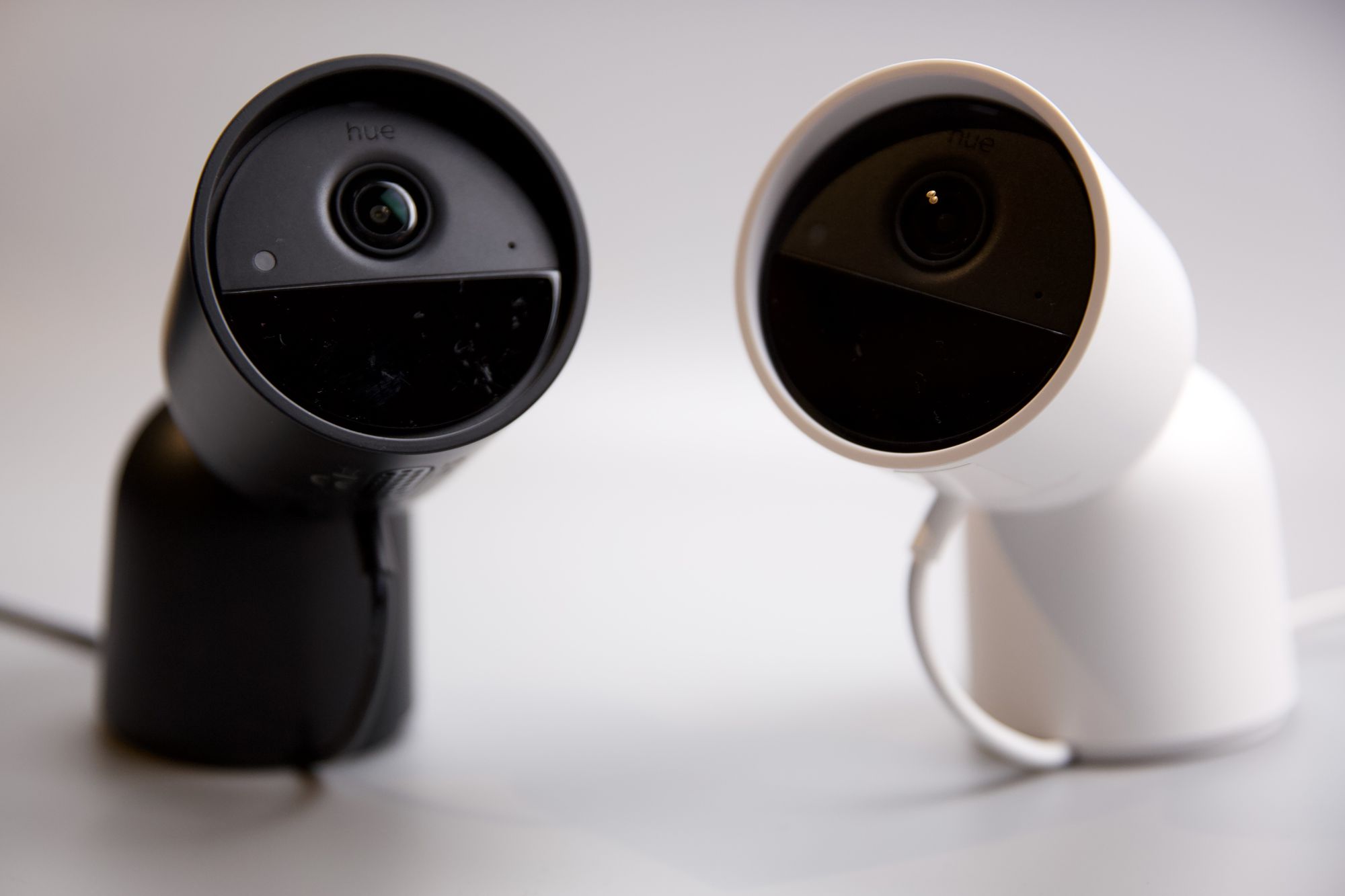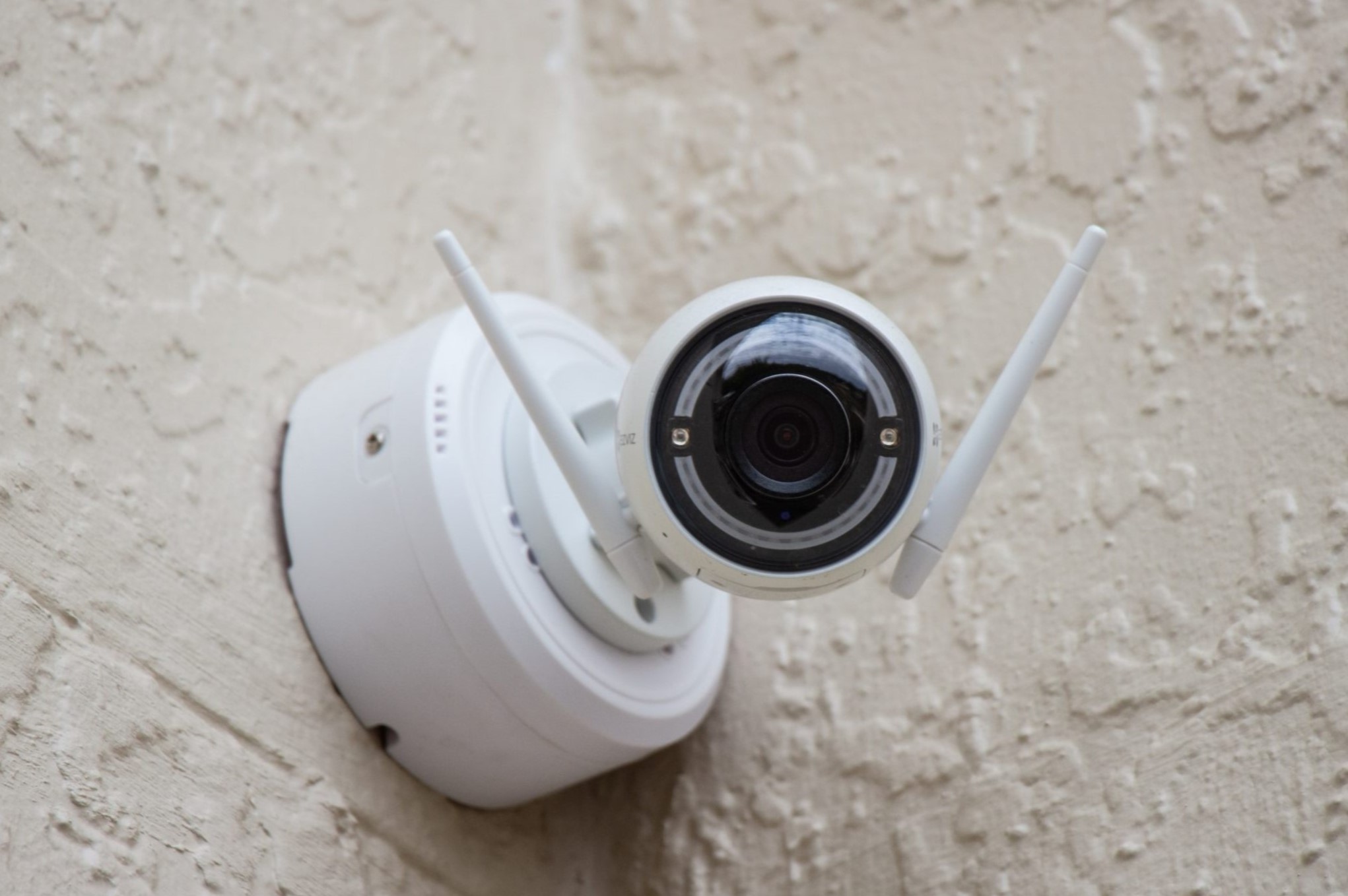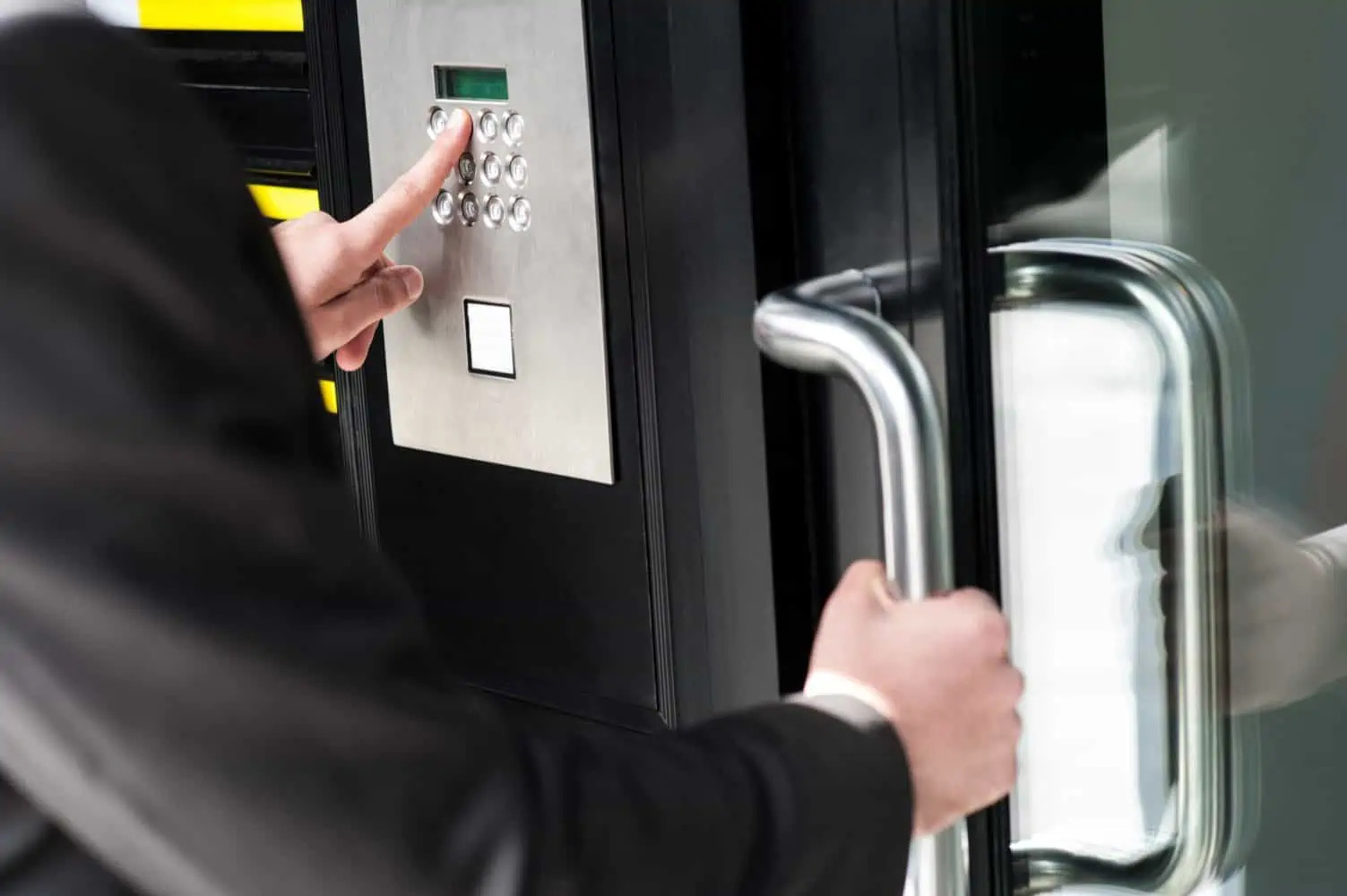Home>Home Security and Surveillance>How Fast Internet Do You Need To Use A Wifi Home Security Camera
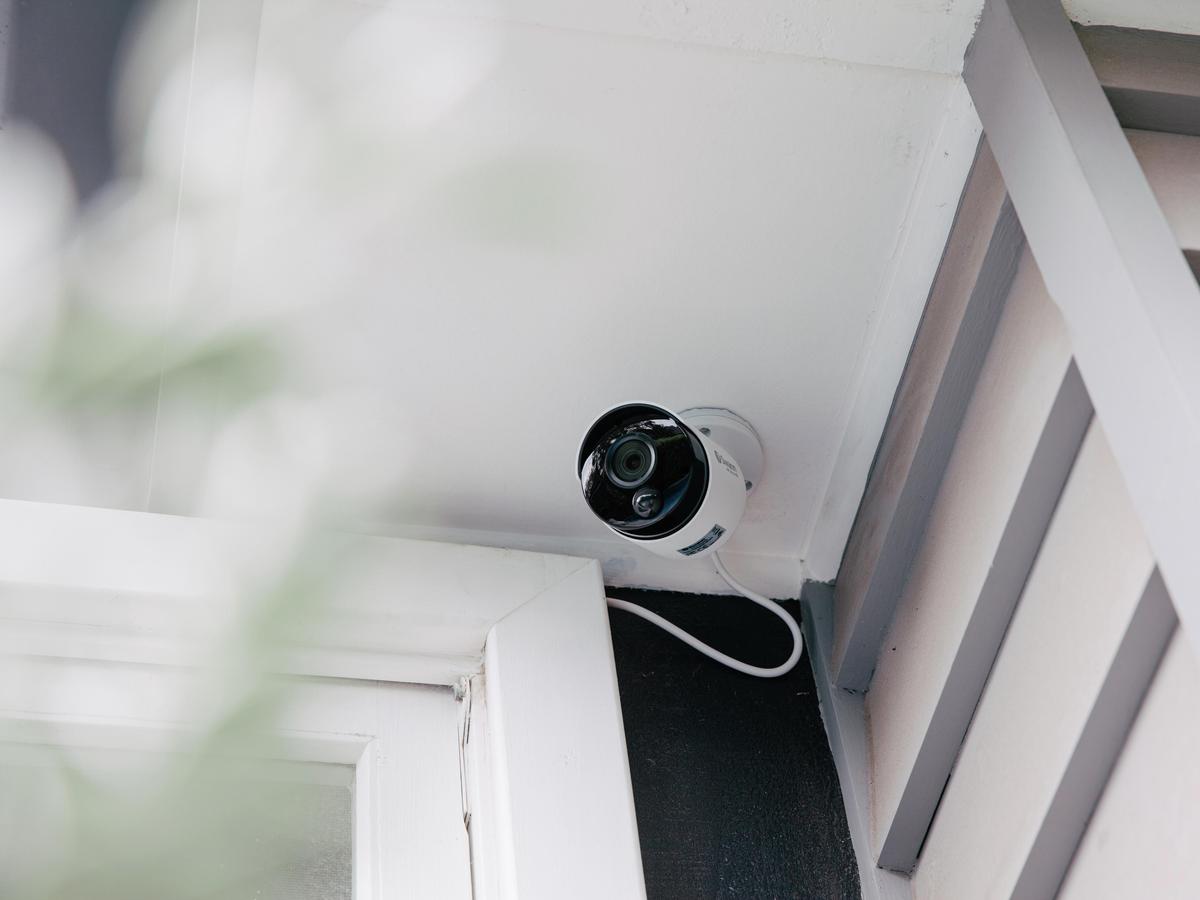

Home Security and Surveillance
How Fast Internet Do You Need To Use A Wifi Home Security Camera
Modified: March 6, 2024
Discover the ideal internet speed for using a WiFi home security camera. Stay connected and ensure reliable home security and surveillance with our expert tips.
(Many of the links in this article redirect to a specific reviewed product. Your purchase of these products through affiliate links helps to generate commission for Storables.com, at no extra cost. Learn more)
Introduction
Welcome to the world of home security and surveillance! Whether you’re concerned about the safety of your loved ones or want to protect your valuable assets, investing in a wifi home security camera is a smart choice. These cameras offer remote monitoring capabilities, allowing you to keep an eye on your property from anywhere at any time.
But as you set up your wifi home security camera, you may wonder: how fast of an internet connection do you really need? The speed of your internet connection plays a critical role in the performance and reliability of your camera system. In this article, we will explore the factors that determine the required internet speed and provide recommendations based on camera resolution to ensure optimal functionality.
So let’s get started and discover how to maximize the potential of your wifi home security camera!
Key Takeaways:
- Ensure smooth video streaming by matching your wifi home security camera’s resolution with the recommended internet speed, ranging from 2 to 20 Mbps based on camera resolution.
- Optimize your internet speed for wifi home security cameras by considering factors like camera resolution, compression technology, and strategic router placement.
Factors determining the required internet speed
Several factors come into play when determining the necessary internet speed for your wifi home security camera. Understanding these factors will help you make informed decisions and ensure smooth and uninterrupted camera performance.
1. Camera resolution: The resolution of your security camera plays a significant role in determining the required internet speed. Higher resolution cameras, such as 4K or 1080p, will generate larger video files that require more bandwidth for transmission. On the other hand, lower resolution cameras, like 720p or standard definition, will require less internet speed to stream the video footage.
2. Number of cameras: If you have multiple cameras installed, each camera will require a portion of your internet bandwidth. The total internet speed needed will depend on the number of cameras that you have connected.
3. Compression technology: Most modern wifi home security cameras use compression algorithms to reduce the size of video files for efficient streaming. Cameras with advanced compression technologies, such as H.264 or H.265, can transmit high-quality video footage without consuming excessive bandwidth. However, older cameras or those without compression capabilities may require higher internet speeds for smooth streaming.
4. Streaming quality and frame rate: The streaming quality and frame rate settings of your camera also impact the required internet speed. Higher quality settings and frame rates will necessitate faster internet connections to maintain smooth and clear video streaming.
5. Other internet usage: It’s essential to consider the internet activities of other devices and users in your household or office. If you have multiple devices streaming videos, playing online games, or performing bandwidth-intensive tasks simultaneously, you may require a higher internet speed to ensure optimal camera performance.
By taking these factors into account, you can determine the appropriate internet speed for your wifi home security camera setup. In the next section, we will explore the recommended internet speeds based on different camera resolutions.
Bandwidth requirements for wifi home security cameras
Understanding the bandwidth requirements of your wifi home security cameras is crucial in optimizing their performance. Bandwidth refers to the amount of data that can be transmitted over an internet connection within a given time frame. To ensure smooth and uninterrupted video streaming, you need to ensure that your internet connection can handle the necessary bandwidth.
The bandwidth requirements for wifi home security cameras can vary based on factors such as camera resolution, compression technology, and streaming settings. Here are some general guidelines to help you determine the bandwidth requirements:
1. Camera resolution: As mentioned earlier, the camera resolution is a crucial factor. Higher resolution cameras, such as 4K or 1080p, will generate larger video files and require higher bandwidth to transmit the footage. On the other hand, lower resolution cameras, like 720p or standard definition, will require less bandwidth.
2. Compression technology: Cameras equipped with advanced compression technologies, such as H.264 or H.265, can significantly reduce the size of video files without compromising quality. This means that even high-resolution cameras with efficient compression can work with lower bandwidth requirements compared to cameras without compression capabilities.
3. Streaming settings: The streaming quality and frame rate settings of your camera also impact the bandwidth requirements. Higher quality settings and frame rates will require more bandwidth to transmit the video footage smoothly. It’s essential to strike a balance between streaming quality and available bandwidth to ensure optimal performance.
4. Number of cameras: If you have multiple cameras installed, each camera will consume a portion of your available bandwidth. The total bandwidth required will depend on the number of cameras that are active simultaneously.
Based on these factors, it is recommended to have an internet connection with a minimum bandwidth of 2 to 4 Mbps (megabits per second) for a single camera with a resolution of 720p or standard definition. However, if you have multiple cameras or higher resolution cameras, you may need higher bandwidth, such as 10 Mbps or more, to ensure reliable video streaming.
Keep in mind that these are general guidelines, and your specific camera setup and streaming requirements may vary. It’s always a good idea to consult the camera manufacturer’s recommendations or a professional installer to determine the exact bandwidth requirements for your wifi home security camera system.
In the next section, we will provide recommendations for internet speeds based on different camera resolutions to help you make an informed decision.
For a wifi home security camera, you’ll need at least 2 Mbps upload speed for standard definition video, and 4-8 Mbps for high definition. Check the camera’s specific requirements for best performance.
Recommended internet speed for different camera resolutions
The internet speed you need for your wifi home security camera will depend on the camera’s resolution. Higher resolution cameras require more internet bandwidth to transmit the video footage smoothly. Here are some recommendations based on different camera resolutions:
1. Standard Definition (SD) or 480p: For cameras with a resolution of 480p or standard definition, a recommended internet speed of at least 2 to 4 Mbps (megabits per second) will suffice. This level of speed should provide smooth video streaming without buffering or lagging.
2. High Definition (HD) or 720p: Cameras with a resolution of 720p, also known as high definition (HD), typically require a higher internet speed. It is recommended to have an internet speed of around 4 to 6 Mbps for reliable streaming of HD video footage.
3. Full High Definition (FHD) or 1080p: Full high-definition cameras with a resolution of 1080p offer superior image quality but require more bandwidth. To ensure smooth streaming of 1080p video, it is advisable to have an internet speed of 6 to 10 Mbps.
4. Ultra High Definition (UHD) or 4K: Cameras with an ultra-high-definition resolution of 4K offer the highest level of detail and clarity. However, they necessitate even higher internet speeds. For optimal streaming of 4K video, an internet speed of at least 15 to 20 Mbps is recommended.
It’s important to note that these recommendations are for a single camera streaming at the specified resolution. If you have multiple cameras or plan to use other internet-dependent devices simultaneously, you may need higher internet speeds to accommodate the additional bandwidth requirements.
Additionally, it’s worth considering that these are general guidelines and the specific performance of your wifi home security camera may vary based on other factors such as compression technology and streaming settings. It’s always a good idea to consult the camera manufacturer’s recommendations or a professional installer to determine the ideal internet speed for your specific camera setup.
In the next section, we will provide some tips for optimizing your internet speed to ensure the best performance of your wifi home security camera system.
Tips for optimizing internet speed for wifi home security cameras
To get the most out of your wifi home security cameras, it’s important to optimize your internet speed. Here are some tips to help you enhance the performance and stability of your camera system:
1. Upgrade your internet plan: If you’re experiencing lag or buffering issues with your camera footage, consider upgrading your internet plan to a higher speed tier. Check with your internet service provider to see if faster options are available in your area.
2. Use a wired connection: While wifi is convenient, using a wired connection can provide a more stable and reliable internet connection for your cameras. Consider connecting your camera system directly to your router using Ethernet cables to minimize signal interference and maximize bandwidth.
3. Place your router strategically: The location of your router can have a significant impact on the strength and range of your wifi signal. Position your router in a central location, away from walls and obstructions, to ensure optimal coverage throughout your property.
4. Limit other internet usage: Bandwidth-intensive activities such as streaming movies or downloading large files can put a strain on your internet connection. To allocate more bandwidth to your camera system, limit or schedule these activities during times when you do not need live monitoring.
5. Optimize camera settings: Adjusting the settings of your wifi home security cameras can also help optimize your internet speed. Lowering the streaming quality or frame rate can reduce the bandwidth requirements without sacrificing too much video clarity. This can be especially useful if you have multiple cameras or limited internet speed.
6. Enable motion detection: Most modern security cameras offer motion detection features that only start recording when motion is detected. By enabling this feature, your camera system will use bandwidth only when necessary, reducing the overall data consumption and optimizing internet speed.
7. Update camera firmware: Regularly check for firmware updates for your cameras. These updates often include performance enhancements and bug fixes that can improve the overall efficiency of your camera system and optimize internet speed.
8. Secure your network: Ensure that your wifi network is secure to prevent unauthorized access and potential bandwidth theft. Use strong passwords, enable encryption protocols (such as WPA2), and regularly update your router’s firmware to protect your network and ensure that your internet speed is dedicated to your camera system.
By implementing these tips, you can optimize your internet speed and enjoy seamless streaming and robust performance from your wifi home security cameras.
Now that you have a better understanding of optimizing internet speed for your camera system, let’s conclude with a summary.
Conclusion
Choosing the right internet speed for your wifi home security cameras is essential for ensuring smooth and uninterrupted video streaming. Factors such as camera resolution, compression technology, and streaming settings all play a role in determining the required bandwidth. By understanding these factors and following the recommendations provided, you can optimize your camera system’s performance and enjoy clear, reliable footage.
Remember, each camera resolution has its own recommended internet speed range. From standard definition (SD) to ultra-high definition (UHD), the required bandwidth increases as the resolution gets higher. It’s crucial to consider the number of cameras you have and the amount of other internet usage in your household to determine the optimal internet speed.
Additionally, optimizing your internet speed involves a combination of factors such as upgrading your internet plan, utilizing a wired connection, strategic router placement, and adjusting camera settings. By following the provided tips, you can make the most out of your internet connection and ensure the best performance of your wifi home security camera system.
Always consult the camera manufacturer’s recommendations or seek advice from professionals to determine the exact bandwidth requirements for your specific camera setup. Keep your network secure, update firmware regularly, and take advantage of features like motion detection to further enhance the efficiency of your camera system.
Investing in a wifi home security camera system is an effective way to protect your home or business and gain peace of mind. By understanding and optimizing your internet speed, you can maximize the capabilities of your camera system and enjoy a secure environment.
Don’t hesitate to make the necessary adjustments and upgrades to ensure a smooth and reliable streaming experience for your wifi home security cameras. With the right internet speed, you can keep an eye on your property with confidence, no matter where you are.
Frequently Asked Questions about How Fast Internet Do You Need To Use A Wifi Home Security Camera
Was this page helpful?
At Storables.com, we guarantee accurate and reliable information. Our content, validated by Expert Board Contributors, is crafted following stringent Editorial Policies. We're committed to providing you with well-researched, expert-backed insights for all your informational needs.
